We cry for Hussain (AS)
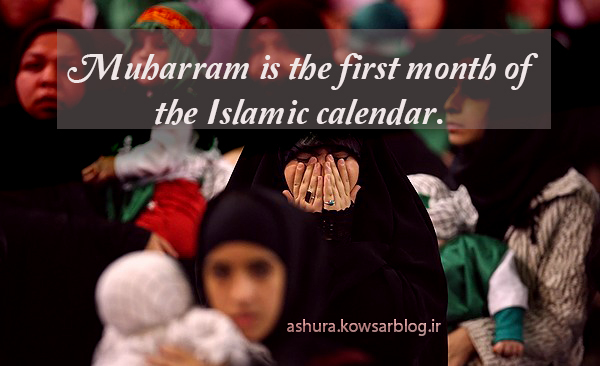
We cry for Hussain (AS) …So did the Prophet of Islam (S)
By Yasser al-Madani
Every year, Muslims around the world commemorate the tragedy of Karbala. They attend mourning meetings and processions in which the story of Karbala is retold, lamentations are held and special poetic readers using dramatic techniques and symbolism recite eulogies to mark the events of the day of Ashura. All these commemorative meetings not only serve to convey the events and message of Karbala but also provide opportunities for us to learn about Islam in general.
We commemorate Ashura’ to symbolise and express our grief and emotions towards the martyrdom of Imam al-Hussain (AS), to keep Imam al-Hussain’s (AS) cause alive in our hearts and to be committed to his cause. Also, we want to extract lessons from the tragedy of Karbala and apply them to our daily lives. We want to pay our condolences to the Holy Prophet (S) and the Ahlul Bayt (AS). You might then ask why we do not commemorate the death of the Holy Prophet (S) who has a much higher rank than Imam al-Hussain (AS). The answer to this is that although we do commemorate and mourn the death of the Holy Prophet (S), it is the way and circumstance in which Imam al-Hussain (AS) was martyred which makes all the difference, the fact that he was martyred for refusing a government headed by the wretched Yazid, who drank, gambled and indulged in many corrupt practices, the fact that those who savagely slaughtered Imam al-Hussain (AS) called themselves Muslims is what makes us mourn and lament his martyrdom the way we do.
Imagine, it is afternoon on the day of Ashura’. Imam al-Hussain (AS) is standing on the blood-drenched soil of Karbala in the heat of the scorching sun awaiting to meet his beloved. His head is wounded and blood is streaming slowly down his holy face soaking his blessed beard. He looks around, searching for members of his family and his companions, only to find them brutally slaughtered and slain like sacrificial lambs, lying there on the ground soaked in blood. He hears the innocent crying and wailing of the children and the women. Tears flow down his holy face. He takes a piece of cloth to wipe the blood from his face, whereupon an archer from the army of Yazid (may Allah’s curse be upon him) shoots a triple-headed arrow, which lodges into Imam al-Hussain’s (AS) heart.
Shiite day of Ashura for what cries
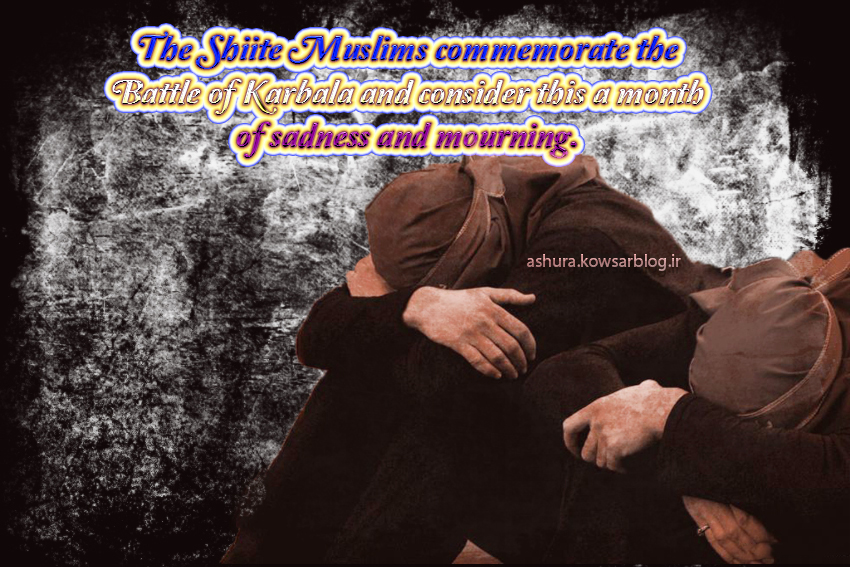
We commemorate Ashura’ to symbolise and express our grief and emotions towards the martyrdom of Imam al-Hussain (AS), to keep Imam al-Hussain’s (AS) cause alive in our hearts and to be committed to his cause. Also, we want to extract lessons from the tragedy of Karbala and apply them to our daily lives. We want to pay our condolences to the Holy Prophet (S) and the Ahlul Bayt (AS). You might then ask why we do not commemorate the death of the Holy Prophet (S) who has a much higher rank than Imam al-Hussain (AS). The answer to this is that although we do commemorate and mourn the death of the Holy Prophet (S), it is the way and circumstance in which Imam al-Hussain (AS) was martyred which makes all the difference, the fact that he was martyred for refusing a government headed by the wretched Yazid, who drank, gambled and indulged in many corrupt practices, the fact that those who savagely slaughtered Imam al-Hussain (AS) called themselves Muslims is what makes us mourn and lament his martyrdom the way we do.
day of ashura
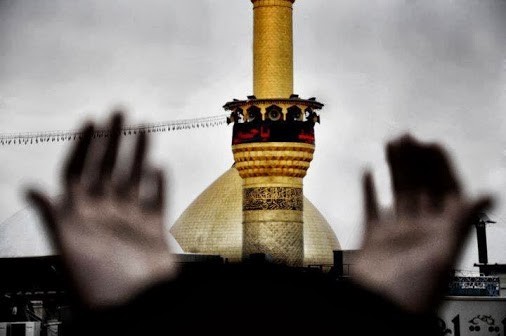
Every year, Muslims around the world commemorate the tragedy of Karbala. They attend mourning meetings and processions in which the story of Karbala is retold, lamentations are held and special poetic readers using dramatic techniques and symbolism recite eulogies to mark the events of the day of Ashura. All these commemorative meetings not only serve to convey the events and message of Karbala but also provide opportunities for us to learn about Islam in general
Lesson of Ashura
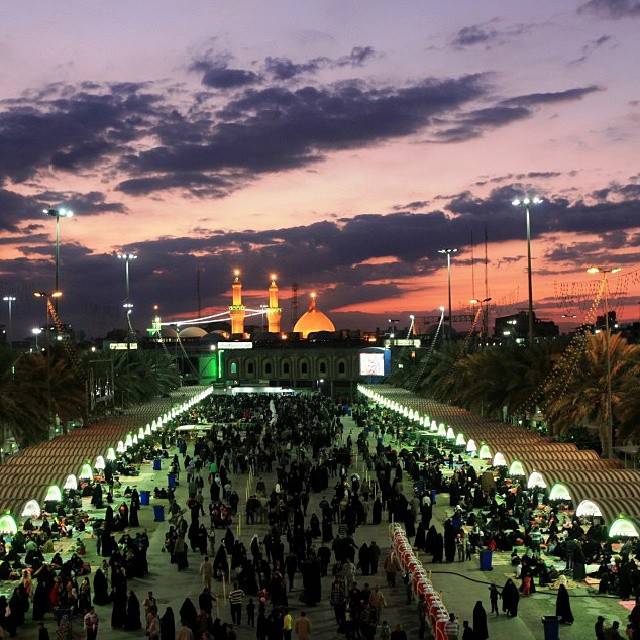
Ayatollah Khameniei
“People must appreciate mourning ceremonies for Imam Hussein’s (Peace Be upon Him) martyrdom in order to create a spiritual connection to Imam Hussein (Peace Be upon Him), family of the Prophet (Peace Be upon Him), Islam and the Holy Qur’an.”
(6th June 1994)
What was the role of women in Karbala ?
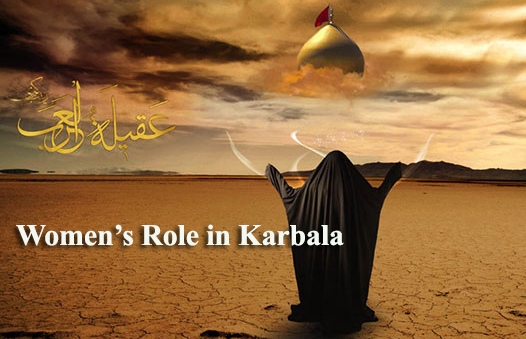
An article by the pure Elweiah , the martyred Bint Alhuda
What a fabulous meeting which gathered us during this days of Muharram with the greatest Islamic disaster, returning its everlasting memories inside us, Muslims!, glorifying its eternity which raising through all ages, and following its heroic, wonderful events to learn from it the highest means of struggles which has been represented with glorious sky lights, generous with spiritual examples, full of all the meanings of good, which were represented on that day of Altaf in Ashura.
That day, which is still and remained as a good lesson in the heart of Muslims, shinning page in Islamic history, an incandescent torch which separating high glories and the right faith, and a clear path towards spiritual immortality and the remains of the immaterial morals.
Lesson of Ashura
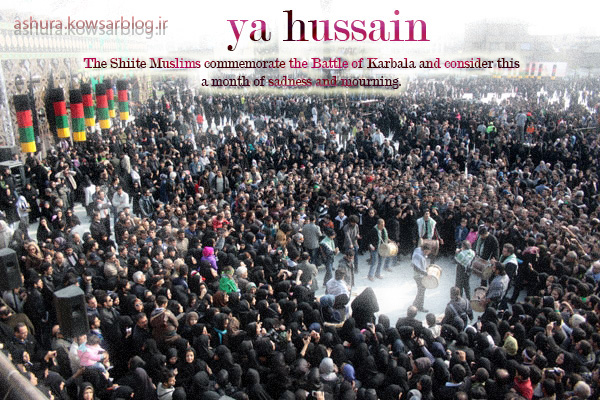
Ayatollah Khameniei
“The lesson that we can learn from Imam Hussein (Peace Be upon Him), is the fact that we have to get ourselves ready for justice and Jihad with all your strength all the time and that is a hard work but we have to try to do this as far as we can.”
(11th July 2013)
Who was Imam Hussein?
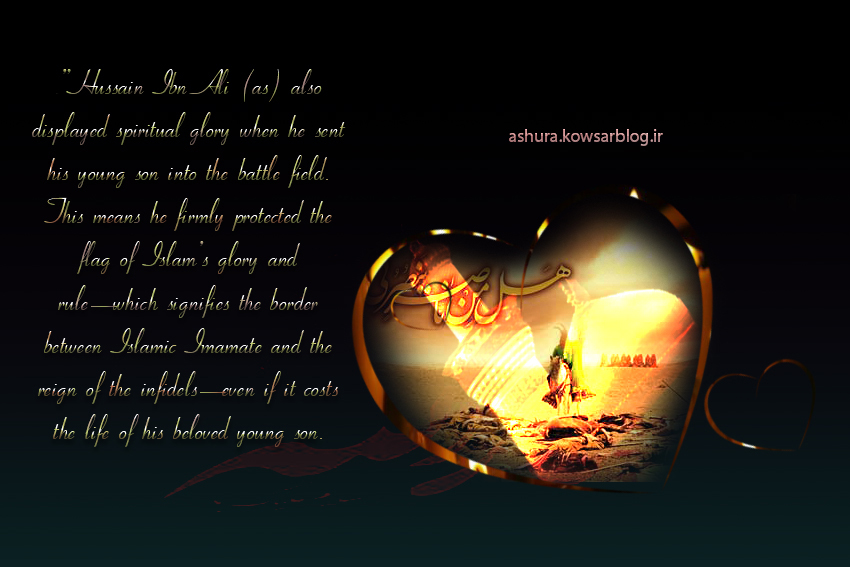
Our praise be upon the running blood of martyrs, cut organs of bodies! Those heads on the spears! Those women taken out of the tents! Our praise be upon the proof of the God of the worlds, Hossein ibn Ali and his pure fathers! The supporters of God’s faith!
The Story of Karbala and Imam Hossein, Narrated by Four Infallible Imams
Imam Hassan Mojtaba
Before Imam Hassan’s martyrdom, Imam Hossein looked at his brother’s face and cried. Imam Hassan asked: “why are you crying?” he said: “I’m crying for the difficulties you underwent” Imam Hassan said: “my difficulty is the poison that kills me! But nothing is as sad as the day of your martyrdom.”
Imam Ali
Imam Ali was sitting in the mosque and all his companions surrounded him. Then Imam Hossein entered the mosque. Imam Ali addressed him and said: “I swear God that you will be killed and then all the earth and the sky would cry for you”